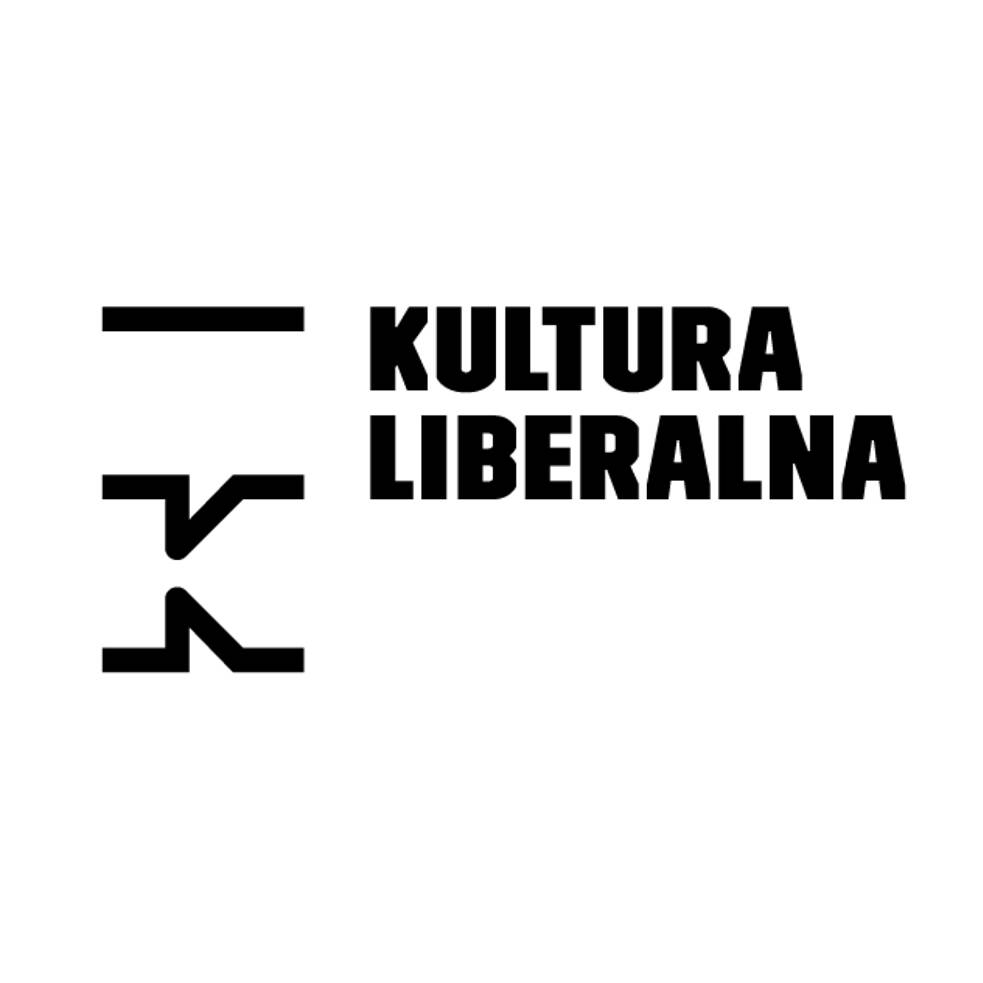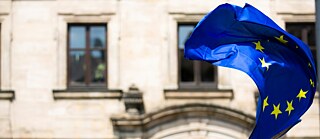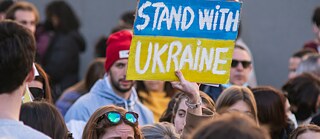How can constructive journalism help in fighting populism?
We asked members of our Newsroom: With regard to the media and political landscape in your country, how can constructive journalism help in fighting populism?

Survey: How can constructive journalism help in fighting populism? | Photo: Key Visual 'Survey: How can constructive journalism help in fighting populism?' © Joël de Vriend for unsplash
Lithuania
Aurelija Babinskienė, Editor with the Bendra.lt, writes:“Journalism is facing a crisis of confidence all over the world, including in Lithuania. People tend to trust social networks, friends' opinions, etc. This trend is particularly pronounced among young people. This threatens to lead people to succumb to various conspiracy theories, and also to get trapped in certain information bubbles, where reality is seen one-sidedly, and anyone with a different opinion is seen as an enemy. This tendency was particularly pronounced in the period of the Covid. The importance of credible media has become even more pronounced since the outbreak of the war in Ukraine, when it has become clear that the propaganda of hostile countries can contribute to the polarization of societies and to the supremacy of democratic values. The polarization of society can be seen in many areas, from human rights to national security issues, sowing distrust in the government, the army, NATO, etc. In this context, various groups (the “Family March” movement was particularly prominent) are being set up to divide society and increase distrust and discontent by promoting “traditional family values”. Journalistic investigations have shown that Russian propaganda is behind these groups.
This is why the media's role is crucial in presenting verified information and distorting conspiracy theories. On the other hand, the media is a business, so there is very often a tendency for important information to be overshadowed by popular news about the daily life of celebrities and so on. A big problem is that regional media are becoming increasingly dependent on local government, which means that only information that is convenient for the government reaches the people - i.e. the media becomes public relations. Solutions must be adopted to enable greater independence for regional media.”

Perspectives - Partnerlogo Media4Change | © Media4Change
Hungary
Attila Horváth, Editor with Radio EPER answered:“Democracy in Hungary is undoubtedly under attack from many sides. Some of these have a greater resonance in the public discourse, some less. Perhaps not so obvious at first glance amid the noise is the systematic dismantling of the courts and the judiciary. In a well-functioning state governed by the rule of law, the courts should act as a counterbalance to the executive power of the government. Independent courts not only decide cases between citizens, but also protect them from the authorities. Since 2012, the current government has been gradually centralising the domestic court system through various legislative amendments and the appointment of politically trusted individuals to certain positions. The National Judicial Council, which is critical for the preservation of the rule of law, is a body with only 15 members and is tasked with reviewing the functioning of the entire court system. Under current law, the government has no say in the election of these members. In addition, only one person is appointed by law, the President of the Curia. The remaining 14 members are chosen by the judges from among themselves. To protect democracy, it is crucial that this body remain independent in the future. And so, constructive journalism can observe and protect independence.”

Perspectives – Logo Első Pesti Egyetemi Rádió (EPER) | © Első Pesti Egyetemi Rádió (EPER)
Poland
Katarzyna Skrzydłowska-Kalukin, Member of the Editorial Board of Kultura Liberalna, argues:“Poland is at a unique juncture: the 2023 parliamentary elections were won by democratic forces, but the current president, Andrzej Duda of the Law and Justice Party (PiS), will remain in office for more than a year. This complicates the task of a future government to restore the independence of the PiS-controlled public media and the state-owned regional media. Restoring their independence is an important part of restoring the rule of law after populist rule. Since 2015, Polish public media have been used to spread disinformation and propaganda and to falsify political reality. In order to restore the rule of law, the democratic coalition will use commissions of inquiry to investigate abuses and violations of the law by populists. But first, it wants to restore the independence of the public media so that the reporting of these commissions is reliable. The independent private media have already contributed to the fight against populism in the best way the media can—by reporting on the activities of the authorities, violations of the rule of law, and exposing scandals that the public media have not portrayed fairly. For example, in 2020, Kultura Liberalna launched the Let Law Rule project, which documents the crisis of the rule of law in Central and Eastern Europe.”

Perspectives - Partnerlogo Kultura Liberalna | © Kultura Liberalna
Slovakia
Tomáš Hučko, Editor-in-Chief with Kapitál, responded:“I am writing these lines just a few days after Slovak Prime Minister Robert Fico announced that he will not communicate with several independent and mainstream media outlets, and selected media outlets are also banned from attending press conferences of other government parties. In addition, the new government has banned journalists from recording television feeds from the National Council and from interviewing politicians in the corridors of the institution. And to make matters worse, people from the conspiratorial media scene have occupied many high government positions, from assistant deputies to state secretaries to the Minister of Culture. What is important in this situation is not only constructive journalism itself (which is important even in more stable times), but also solidarity among the media themselves. Example: If the ruling party bans selected media from a press conference (and it is always those that are critical of the ruling party), the other media should also not report from the press conference. Perhaps politicians would realize that a press conference without journalists ceases to make sense. In the same way, politicians who actively prevent access to public information should not be given any space by the media. This may seem like a radical solution, but in critical times, journalistic freedom needs to be defended with a more radical approach. I take it for granted that all government actions aimed at suppressing independent journalism must be critically and objectively reported at all times. Finally, it should be said that these steps, which are directed against journalists, come just days after the appointment of the government. If nothing unexpected happens, similar attacks on media freedom will be coming for the next few years, so, in addition to solidarity and constructive journalism, we need something else: perseverance.”

Perspectives - Logo Kapitál | © Kapitál
Germany
Patrick Hamouz, Editor-in-Chief of the online magazine JÁDU, argues:“The greatest threat to democracy in Germany is the rise of right-wing extremism. Under the trivialising label of “right-wing populism,” right-wing extremist positions are now strongly represented in parliaments in the form of the so-called Alternative for Germany (AfD). The party's rhetoric aims to break down social cohesion, particularly by linking migration and social issues. According to opinion polls, this is unfortunately paying off for the AfD at the moment. Independent media that are committed to journalistic ethics have always been a natural enemy of simplistic messages. It is therefore hardly surprising that the narrative of the alleged “lying press” (“Lügenpresse”) is a perennial favourite of the far right. But journalists must constantly ask themselves: Which provocations are systematically used by the right simply to generate attention? Do we really have to jump over every stick that is held out to us?
Resources might be better utilized when we commit ourselves to more media education. Media consumers of all ages and social classes must be enabled to quickly and confidently evaluate the credibility and intention of content. Such a dedication to media literacy will certainly bear fruit, but certainly not overnight. What can we do now? I believe that constructive journalism can make an important contribution by not only naming the problems, but also reflecting on them from multiple perspectives and reporting them in a solution-oriented way. News reporting is unfortunately dominated by alternating crises that often leave media consumers in an almost apathetic state of shock. However, we need more stories that show readers, viewers, and listeners – all of us! – options for action even in the greatest crisis and ideally inspire us to actively fulfill our role as responsible citizens, to exercise our democratic rights, and to defend them against all threats. We want to tell such stories!”

Czech Republic
Marina V. Sternova, Editor-in-Chief of revue Prostor explains:“Revue Prostor was founded 40 years ago as an anti-regime samizdat magazine out of a desire for freedom and democracy. Independence is the heart of journalism, and independent journalism is the heart of democracy. However, this seemingly banal bon mot becomes essential when the journalist's work is questioned, for example, by representatives of democratic states. We heard the prime minister of one EU country declaring that journalists are “anti-state prostitutes”, or the president of another EU country pulling a gun on a journalist as a joke. The defense against the manipulation of populism lies in the unquestionable affirmation of the journalistic mission. I think that the important goal is to amend outdated media legislation, enforce the state support for independent media, and fight against forces challenging the uniqueness of the truth. We need to invent convincing ways of doing journalism in a world of hybrid platforms with their fragmentation, influencers, and cannonade of misinformation if the journalistic craft is to survive beyond the old Gutenberg days. One of the ways is to provide constructive journalism that provides readers with solution-oriented texts and thus contributes to the constructive and positively led dialogue in society. At the same time, we should stand in solidarity with those journalists in places where they become enemies of the state and the target of virtual and physical attacks. Let's explain, persevere, let's publish.”

Perspectives - Partnerlogo Revue Prostor | © Revue Prostor
Lithuania
Karolis Vyšniauskas, editor at NARA.lt, responded:“At first glance, Lithuania seems like a hopeful exception in today’s political climate. Our press freedom is at a record high (number 7 in the world, according to Reporters Without Borders). Lithuanians, who joined the EU in 2004, remain strong believers in the European project (64% say they trust the EU – the third highest number among 27 countries). On the other hand, we have populist parties in the Parliament, and today’s government, though branded as progressive, failed to make any meaningful advancements in terms of human rights. For example, we still have a law prohibiting positive speech about LGBTQ+ families.
The role of journalists is vital in this climate because Lithuanian journalists tend to push society towards more just and democratic ideals. Lithuania has a strong public broadcaster LRT, we also have a growing number of independent, member-support-driven media organisations – NARA is one of them. A big factor fueling populism in the EU is soft power by the Kremlin, but Lithuanians are good at detecting it. I would say that Lithuanian journalists have the knowledge and tools to fight populism – they just need more funding to feel more secure in this fragile profession.”

Perspectives - Partnerlogo Nara | © Nara




